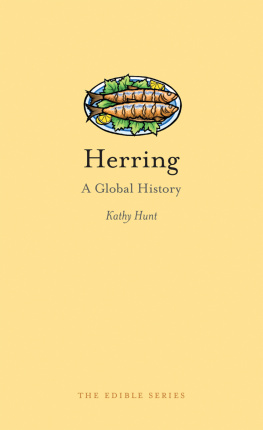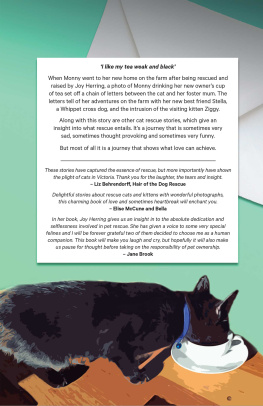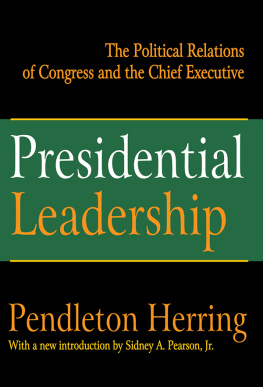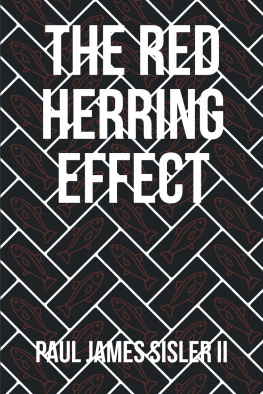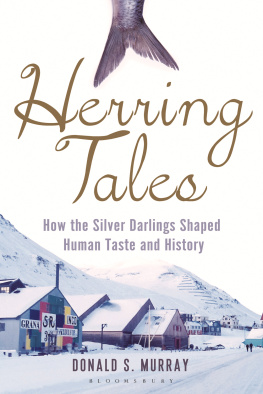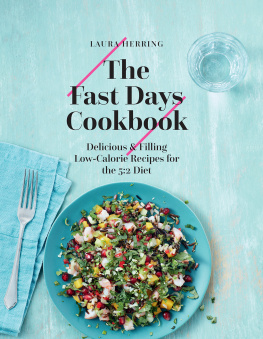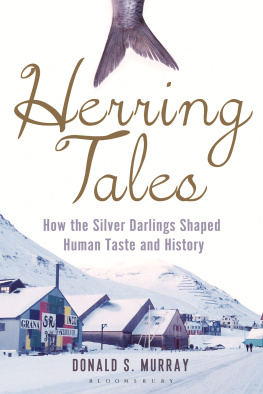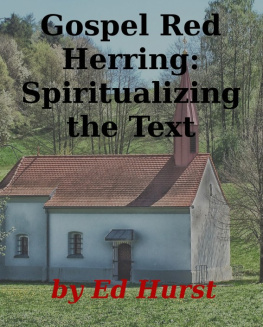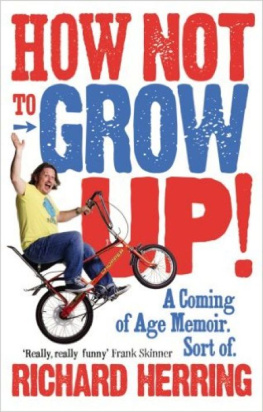HERRING

Edible
Series Editor: Andrew F. Smith
EDIBLE is a revolutionary series of books dedicated to food and drink that explores the rich history of cuisine. Each book reveals the global history and culture of one type of food or beverage.
Already published
Apple Erika Janik Banana Lorna Piatti-Farnell
Barbecue Jonathan Deutsch and Megan J. Elias
Beef Lorna Piatti-Farnell Beer Gavin D. Smith
Brandy Becky Sue Epstein Bread William Rubel
Cake Nicola Humble Caviar Nichola Fletcher
Champagne Becky Sue Epstein Cheese Andrew Dalby
Chillies Heather Arndt Anderson Chocolate Sarah Moss
and Alexander Badenoch Cocktails Joseph M. Carlin
Corn Michael Owen Jones Curry Colleen Taylor Sen
Dates Nawal Nasrallah Doughnut Heather Delancey Hunwick
Dumplings Barbara Gallani Edible Flowers Constance L. Kirker
and Mary Newman Eggs Diane Toops Fats Michelle Phillipov
Figs David C. Sutton Game Paula Young Lee Gin Lesley Jacobs
Solmonson Hamburger Andrew F. Smith Herbs Gary Allen
Herring Kathy Hunt Honey Lucy M. Long Hot Dog Bruce Kraig
Ice Cream Laura B. Weiss Lamb Brian Yarvin Lemon Toby Sonneman
Lobster Elisabeth Townsend Melon Sylvia Lovegren Milk Hannah Velten
Moonshine Kevin R. Kosar Mushroom Cynthia D. Bertelsen
Nuts Ken Albala Offal Nina Edwards Olive Fabrizia Lanza
Onions and Garlic Martha Jay Oranges Clarissa Hyman
Oyster Carolyn Tillie Pancake Ken Albala Pasta and Noodles
Kantha Shelke Pie Janet Clarkson Pineapple Kaori OConnor
Pizza Carol Helstosky Pomegranate Damien Stone Pork Katharine
M. Rogers Potato Andrew F. Smith Pudding Jeri Quinzio
Rice Renee Marton Rum Richard Foss Salad Judith Weinraub
Salmon Nicolaas Mink Sandwich Bee Wilson Sauces Maryann Tebben
Sausage Gary Allen Seaweed Kaori OConnor Shrimp Yvette Florio Lane
Soup Janet Clarkson Spices Fred Czarra Sugar Andrew F. Smith
Tea Helen Saberi Tequila Ian Williams Trufe Zachary Nowak
Vodka Patricia Herlihy Water Ian Miller
Whiskey Kevin R. Kosar Wine Marc Millon
Herring
A Global History
Kathy Hunt
REAKTION BOOKS
Published by Reaktion Books Ltd
Unit 32, Waterside
4448 Wharf Road
London N1 7UX, UK
www.reaktionbooks.co.uk
First published 2017
Copyright Kathy Hunt 2017
All rights reserved
No part of this publication may be reproduced, stored in a retrieval system, or transmitted, in any form or by any means, electronic, mechanical, photocopying, recording or otherwise, without the prior permission of the publishers
Page references in the Photo Acknowledgments and
Index match the printed edition of this book.
Printed and bound in China by Toppan Leefung Printing Limited
A catalogue record for this book is available from the British Library
eISBN: 9781780238678
Contents
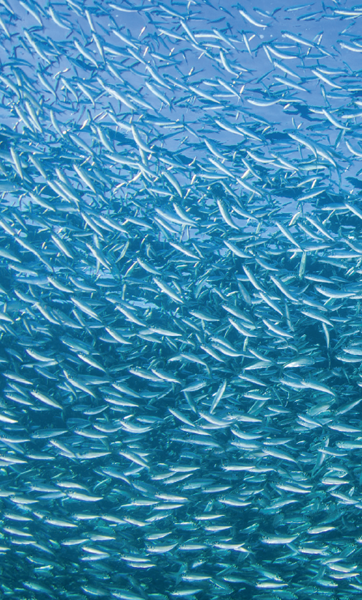
Introduction

For centuries the small, unassuming, ocean-dwelling fish known as herring has served as the backbone for countless European and North American communities, providing sustenance and economic stability to millions. In the Viking era it fed both the Norse marauders and their conquests. During the Middle Ages it prompted the founding of fishing villages and port cities such as Great Yarmouth, Copenhagen and Amsterdam. Along with creating commonwealths, it spurred the formation of a structured workforce and fish-selling guilds. In twelfth-century France, where herring was a luxurious indulgence, herring sellers or harengres were deemed the crme de la crme of the fishmonger guilds.
Herring inspired the inception of maritime rights, the thought rightly being that no creature as coveted as herring could be left unregulated or unprotected. Even so, the fish still sparked raids, riots and fights. From the 1429 Battle of the Herrings between England and France to the 2013 herring war between the European Union and Faroe Islands, these skirmishes have spanned the centuries.
History teaches us that wars usually end in treaties. Herring conflicts were no exception. They produced pacts such as the Treaty of 1818, which gave the United States permission to fish along the coast of Newfoundland and Labrador.
Founding cities, providing food and jobs, prompting wars and treaties thats quite a list of accomplishments for a fish that maxes out at 30 cm long and 700 g. Dont applaud herring too soon, for its reach extends even further, into language and culture. Take the case of red herring. In addition to denoting a type of smoked fish, the term refers to anything serving as a diversion or deliberate misdirection.
The fish stars in such English slang as dead as a herring. The former phrase dates back to the sixteenth century and alludes to the horrendous odour that a dead herring gives off, leaving its death unquestionable. It is a take on the fourteenth centurys dead as a doornail, which also means quite dead or done.
Another English original, done up like a kipper, implies that a person has been framed, betrayed or caught red-handed. Most historians attribute this meaning to the actual definition of a kipper. This is a herring that has been split, gutted and hung up to smoke and dry. If framed for an act you didnt commit or left to face a horrible situation on your own, you certainly could feel that, like a kipper, you had been hung out to dry.
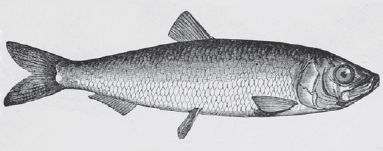
Sketch of Atlantic herring, Clupea harengus, from Elements of Comparative Zoology (1905).
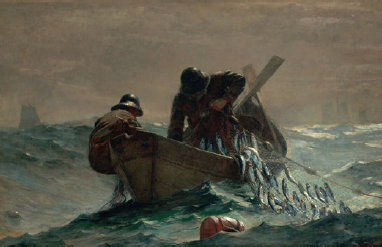
Landscape painter Winslow Homers The Herring Net, 1885.
Along with infiltrating the English language, herring have sneaked into poetry and prose. The eighteenth-century Irish writer and satirist Jonathan Swift composed the following verse about Irish herring sellers:
Be not sparing,
Leave off swearing,
Buy my Herring
Fresh from Malahide,
Better neer was tryd.
Come eat em with pure fresh Butter and Mustard,
Their Bellies are soft and white as Custard.
Come Sixpence a Dozen to get some Bread,
Or, like my own Herrings, I soon shall be dead.
Swift wasnt the only eighteenth-century writer to feature the diminutive fish in his work. In the 1791 narrative poem Tam OShanter the Scottish poet Robert Burns proclaims, Ah, Tam! ah Tam! thoull get thy fairin! / In hell theyll roast thee like a herrin! Nor was herring limited to the printed page. In 1885 the American landscape painter Winslow Homer painted The Herring Net, a depiction of two English fishermen hauling their glistening herring catch into their small, wooden boat. Homers grand work now hangs in the Art Institute of Chicago. The nineteenth-century Scottish artist Robert Weir Allan portrayed herring fishermen unloading their catch in

